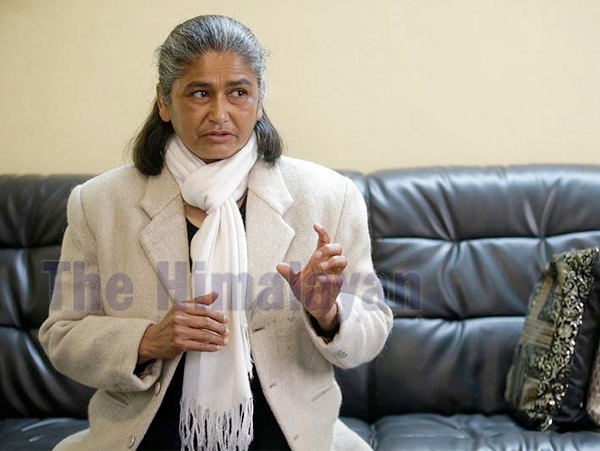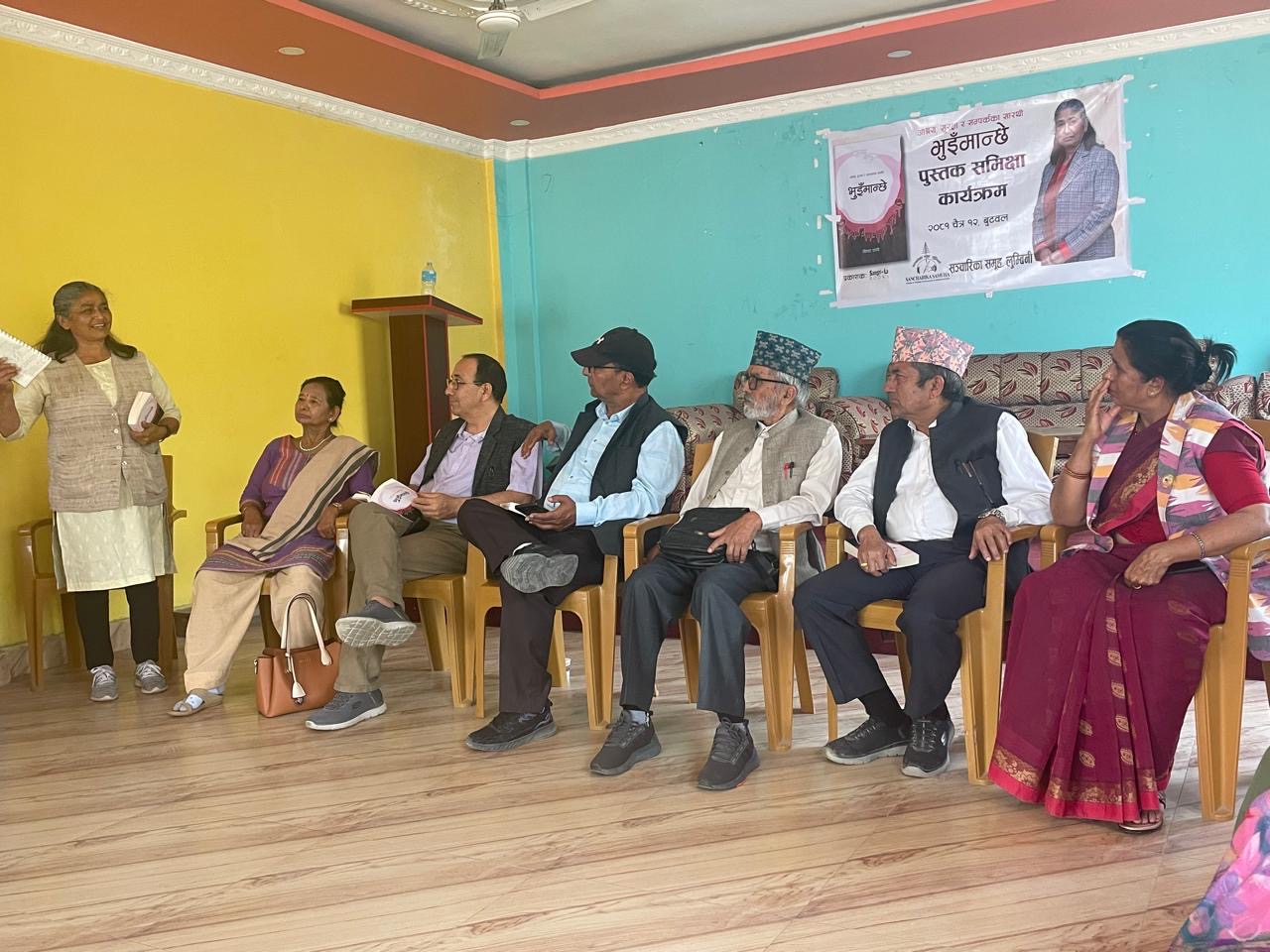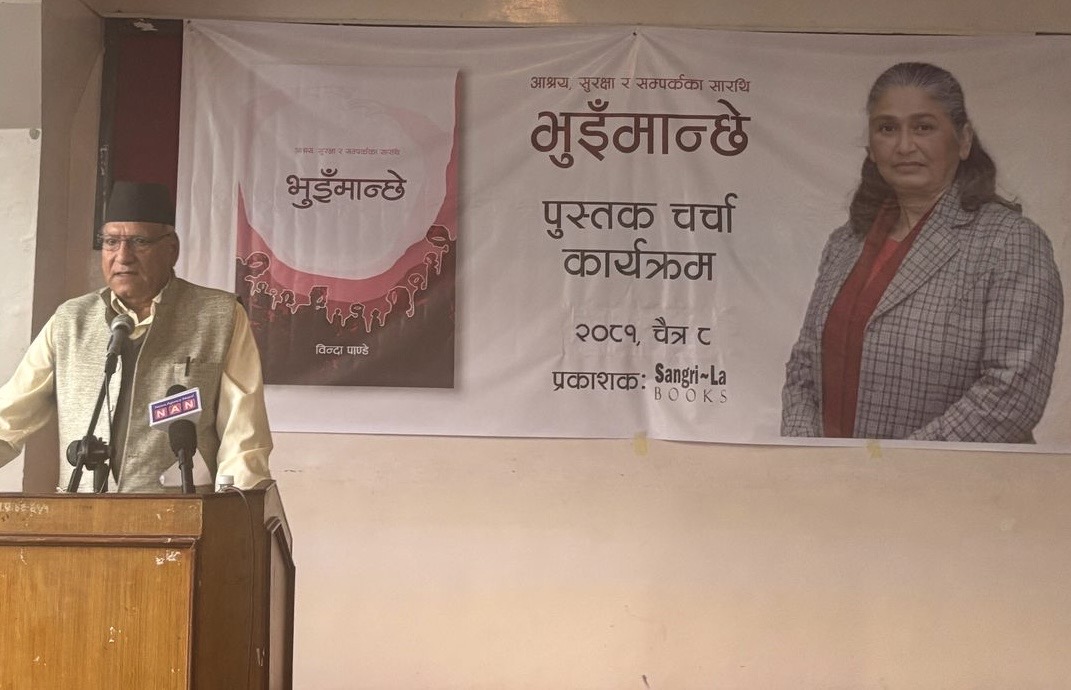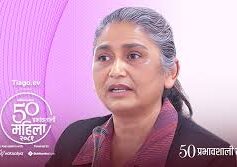Strengthening Advocacy and Campaign Initiatives on Gender Equality National & International Labors Institutions join hand to achieve it – Sept. 23, 2014
Binda Pandey, Member, ILO-GB & GEFONT-GC
 Gender equality is one of the key issues for trade union movement over the world. Since the beginning, women issues have been taken into priority by union movement. If, we look back history of labor movement, in 1864, when workers of the world were meeting first time and having first congress in 1866 International Workingmen’s Association, they had included a woman in the committee and after sometime they realized that to organize more women in the union movement, should have separate women worker’s mechanism. This tradition is still working around the world and almost all the gender sensitive trade unions are having women/gender mechanism within, internationally as well as nationally.
Gender equality is one of the key issues for trade union movement over the world. Since the beginning, women issues have been taken into priority by union movement. If, we look back history of labor movement, in 1864, when workers of the world were meeting first time and having first congress in 1866 International Workingmen’s Association, they had included a woman in the committee and after sometime they realized that to organize more women in the union movement, should have separate women worker’s mechanism. This tradition is still working around the world and almost all the gender sensitive trade unions are having women/gender mechanism within, internationally as well as nationally.
Traditionally and even today, informal sector is working place for majority of workingwomen, which is not covered by labor law in most of the countries. It means, whatever national and international commitment has been made by the state to provide equal treatment for men and women through legislation, do not touch upon them.
The organizing sectors of BWI are as well one of those area, which is not covered by national law in most of the place, whish is one of the biggest challenges to fight for gender equality and trade union rights. But, because of continuous demand from workers side, one after another country is responding the demand to extend the legal coverage to informal sectors, as impact of collective voice and continuous fighting.
Women in the informal sectors have been started counted in as workforce. Gender issue has been considered as common and cross cutting issues in all sectors. It has been happened as result of tireless investment of our sweat and energy. That is why, we should be proud of our achievement and keep fighting to for full fledge equality in treatment, in the day to come. Hope is inspiration to move forward for better future. Let us continue our effort to organizing, fighting and collectivism among the working masses.
ILO is one of the special tripartite mechanisms to raise workers right, for equality. It is responsible for promoting gender equality in their work. To facilitate the issues of the gender equality, it has Bureau for Gender Equality, to support and advise constituents and office staffs to promote and advocate for gender equality in the world of work. It also has developed instruments such as participatory gender audit (PGA) to monitor and see the impact of gender policy and make necessary recommendation.
In fact, ILO is giving high priority toi gender equality in the world of work since its establishment. The founding international labor conference (ILC) of ILO in 1919 set up maternity protection convention (no.3), which was out of six conventions adopted first time in the history.
Convention on gender equality such as Equal Remuneration Convention (No. 100, 1951) established the rig ht to equal pay for women and men for work of equal value and then next as Discrimination (Employment and Occupation) Convention (No.111, 1958), to insure the issue further of equal wages to encompass broader discrimination were adopted. These two-landmark conventions have been recognized as Fundamental workers right conventions in 1998. In ILO history, these two conventions have been almost universally ratified by member States.
ht to equal pay for women and men for work of equal value and then next as Discrimination (Employment and Occupation) Convention (No.111, 1958), to insure the issue further of equal wages to encompass broader discrimination were adopted. These two-landmark conventions have been recognized as Fundamental workers right conventions in 1998. In ILO history, these two conventions have been almost universally ratified by member States.
Following the adoption of the UN Convention on the Elimination of all Forms of Discrimination against Women (CEDAW) in 1979, ILO went a step further by adopting the Workers with Family Responsibilities Convention (No. 156), which aims to ensure equal opportunities and treatment for men and women workers.
Arriving in 2000, the Maternity Protection Convention was reviewed and adopted new Convention (No. 183) as most updated ILO standard on maternity protection, dealing with a range of topics, including health protection, maternity leave and benefits, employment protection, non-discrimination and breastfeeding.
In this way, over the period of 80 years (1919-2000), the ILO has adopted four key gender equality Conventions (No. 100, 111, 156 and 183), which has been taken by union movement as key instruments to protect women worker’s right at workplace.
In 2008, the Declaration on Social Justice for a Fair Globalization is one of the major steps of adopting Principles and Policies by the ILO, with expression of contemporary vision in the era of globalization and embraces gender equality and non-discrimination as cross cutting issues. One year later, gender equality was discussed in depth at the ILC-2009 and adopted the resolution on “Gender Equality at the Heart of Decent Work.” It helped to create momentum in the labor movement to organize women workers.
Majority of the workers in the domestic sphere are women and which was most undignified, unrecognized and exploited in the world of work. Responding the situation, ILO adopted the Domestic Workers Convention (No. 189), to address the necessity of change.
Latest decade of the era, gender equality movement is focusing on gender mainstreaming through the process of assessing the implications for women and men of any planned action, including legislation, policies or program at all levels. It is a strategy for making women’s as well as men’s concerns and experiences an integral dimension in the designing, implementation, monitoring and evaluation of policies and program in all spheres. By which, women and men can benefit equally with the ultimate goal of achieving gender equality.
Clear gender perspective is needed for proper analysis of productive, reproductive, family and community based gender roles to identify the strategic gender needs and develop program based on that. Furthermore, equal representation and participation of women and men in decision-making are also fundamental for addressing political, social and economic issues.
Gender analysis also helps to make gender-specific interventions, to promote gender equality. This will require a change in attitudes and working habits, cooperation and teamwork as well as the development of fair competency. ILO is trying to manage all these instruments for the cost of gender equal world of work.
International Trade Union Confederation (ITUC) is another important international institution to fight for gender equality together with Global Union Federations (GUFs) including BWI. Women are increasingly becoming part of the paid workforce and of trade unions, which has been an important achievement in organizing. But the overwhelming numbers of women are in precarious, non-skilled, low-paid jobs.
ITUC and its affiliates work together to advance women’s rights and gender equality. ITUC actively promotes equality at the workplace and the full integration of women in trade union movement, including in increase their participation in decision making bodies, setting up at least 30 per cent women as commitment.
Recently, ITUC is lunching Count Us In! Campaign with aims of 80 percent of its affiliates with 30 percent of women in their decision-making bodies by 2018. The message of this campaign is clear that – count us (women) in to the workforce, unions and its leadership. It aims to increase the women membership by 5 per cent by 2018 as well.
ITUC is considering women not only as half of the population of the world, but also half of the workforce. And, the full mobilization of their potential to build up society with equal treatment at workplace, the GDP would increase very fast and poverty can be reduced.
Recognizing the problem of gender based violence at workplace, ITUC is calling for a new international Convention on gender-based violence at the workplace, which is under discussion in ILO-GB. Unions in many countries are also campaigning to stop gender-based violence at workplace as well as within trade union movement itself. BWI as GUFs and GEFONT as national central can be taken as example for this.
BWI believes that gender equality can be achieved by ensuring women’s full integration into trade unions. It stands firmly following the gender issues in priority through defending women’s rights, orgnsising them within, enhancing participation in policy and decision making process, promoting equality in employment opportunities, equal pay for work of equal value, addressing work-life balance, labor market reform and advocating against gender discrimination and gender-based violence etc. I believed this program is part of that initiatives and I wish for all the successnwith full heart of solidarity
Let us continue our struggle collectively, consciously and effectively with high confidence to achieve the goal one day in our lifetime.
Thank you very much for your kind attention and thanks to organizer for this opportunity to share my views with you all.
Solidarity Make Us Strong !





